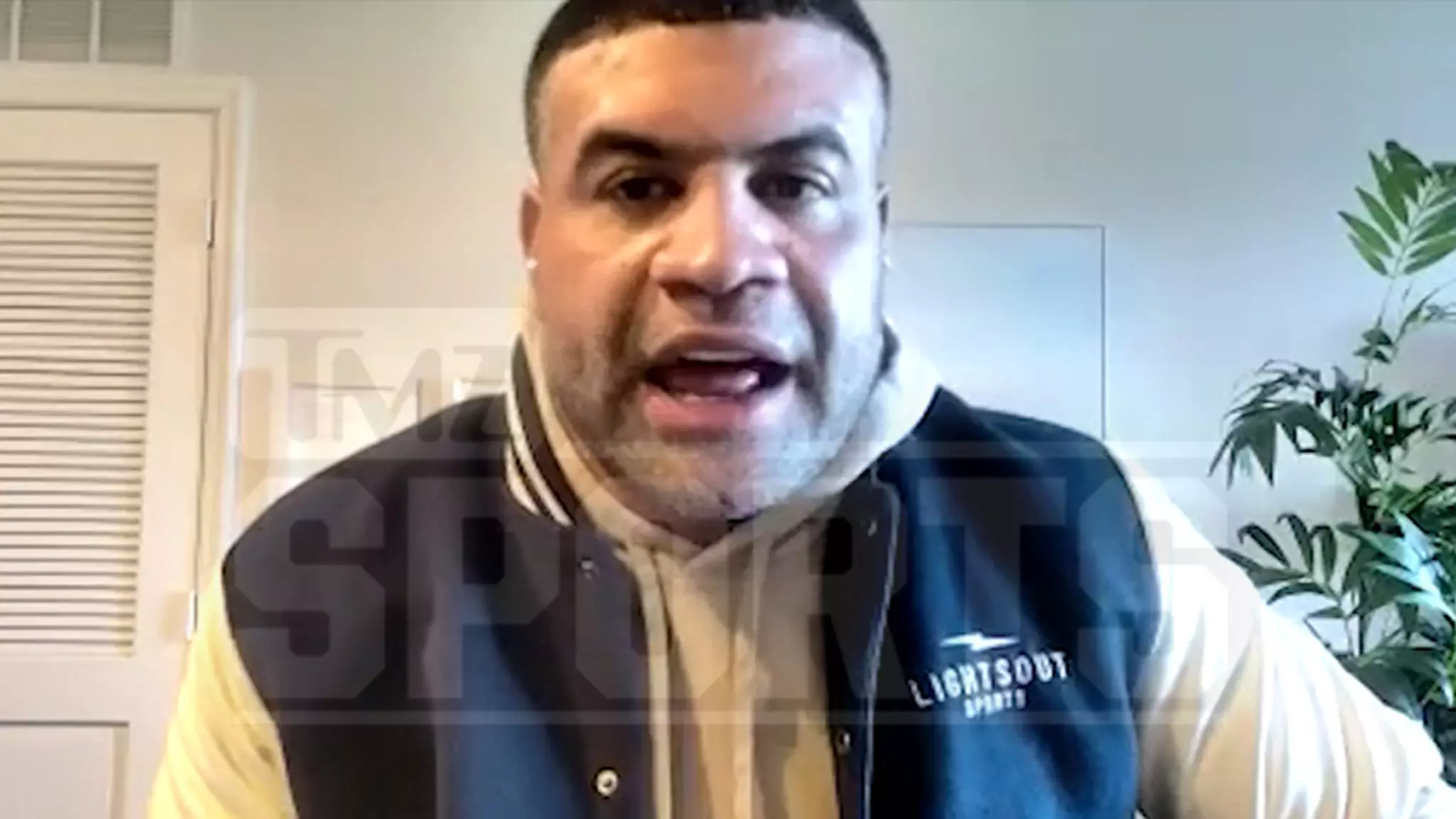In the world of professional sports, an athlete’s reputation can be meticulously crafted over years of dedication and performance. Players invest their entire careers in building a persona that reflects their skill, reliability, and professionalism. This intricate edifice of public perception can crumble in an instant, often due to a single poor decision or misjudgment. Take, for example, the case of San Francisco 49ers linebacker De’Vondre Campbell, whose choice to refrain from entering a game during a critical moment has sparked controversy and concern about his future in the NFL. This incident highlights how fragile an athlete’s standing can be and raises pertinent questions about accountability and resilience in high-pressure situations.
During a recent game against the Los Angeles Rams, a pivotal moment occurred in the third quarter that would soon dominate the headlines. When a teammate was injured, Campbell, a veteran player with nine years in the league, hesitated to step in when called upon. His actions, or lack thereof, did not go unnoticed by fans and analysts alike, igniting a fierce reaction from teammates and former players. Charvarius Ward and George Kittle, both pivotal figures in the organization, publicly criticized Campbell’s unwillingness to support his team during a crucial point in the match. Such condemnation from one’s own teammates reflects deeper issues of trust and reliability that are essential in the dynamic ecosystem of team sports.
Retired NFL linebacker Shawne Merriman weighed in on this controversy during an appearance on TMZ Sports, making it clear that Campbell’s reputation may now be irreparably damaged. He noted, “I’d be shocked if another team decides to pick him up after the season.” Merriman underscored the importance of decisions made in critical moments and emphasized the long-lasting effects of such choices. His remarks serve as a reminder that the stakes in professional sports are astronomical, not just in terms of performance on the field, but also regarding a player’s character and the impressions they leave with teammates and management.
The situation with Campbell illustrates a broader theme pertinent to any professional setting: accountability and reliability are non-negotiable. Campbell’s hesitation is not merely an isolated incident; it is a reflection of an attitude that can lead to larger implications in a competitive sport where teamwork is paramount. Merriman’s insistence on the need for Campbell to issue a “very heartfelt message” resonates as a critical step towards redemption. In the business of sports, owning up to mistakes and demonstrating remorse can be essential in regaining trust and credibility.
For Campbell, the path ahead is fraught with uncertainty. His skillset as a player is undeniable; however, the shadow of this incident looms large. Merriman expresses doubt about Campbell’s prospects for future teams if he fails to acknowledge his actions. This creates a significant fork in the road: either Campbell must confront the fallout of this incident head-on, potentially through public statements or personal outreach, or he risks being labeled as unreliable—a mark that may follow him for the remainder of his career.
The narrative surrounding De’Vondre Campbell serves as a cautionary tale for all professional athletes. It underscores the importance of making decisions that align not just with personal aspirations but also with the expectations of teammates and organizations. The speed at which reputations can be made or broken necessitates a continuous commitment to professionalism and leadership, even when the pressure is high. In the final analysis, how Campbell navigates this challenging chapter will determine not only his future in the NFL but also serve as a case study for future generations of athletes who aspire to build and maintain a strong, positive reputation in the unforgiving arena of professional sports.

Leave a Reply